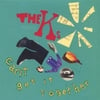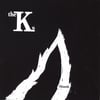This was written before the death of Gabriel Garcia Marquez. Now he really IS dead.
My mother forwarded an e-mail about the impending death of Gabriel Garcia Marquez, with a sentimental poem attached, supposedly penned by the great author. A quick google revealed that GGM isn’t dying, and he didn’t write the poem. I started to respond with a weathered chestnut, “Did you know that the word ‘gullible’ isn’t in the dictionary?”
Before I hit reply, I was hit with a strange doubt. That is a lie, isn’t it?
I pulled my Websters off the shelf to look for myself. I was stunned to see this:

I’ve scanned the page from the Dictionary. “Gullible” isn’t there.
Here it is close up. You can click the images to make them bigger.

It goes straight from "gullet" to "Gulliver."
I checked the spelling, and I checked online. Microsoft accepts the word without any red zig-zags, but no respected Dictionary, hard-copy or online (certainly not the Mirriam-Webster and Oxford online editions) spits out a word for gullible. Just as no one is actually buried in Grant’s tomb, belying the obvious intuitive answer, the word “gullible” is actually not in the Dictionary.
What gives? I e-mailed Professor Ed Pamaemuna, a linguistics scholar at Columbia University. He quickly replied.
Of course, Dr. Wilte pointed out that while some 1300 words Shakespeare created have entered English standard, he made up tens of thousand of words that did not. For every “amazement” and “mimic” there are ten “stringfellows”; “bardicombs”; "gufusgallants” and “gullibles.”
It turns out that gullible came up for consideration by the dictionary boards a number of times, and was rejected, in the centuries since Shakespeare’s time. There were then, as there always are with any word, questions of longevity. It turns out “gullible” did have the staying power to last to this day, but it lacked the champions to keep it on the docket for consideration at the major dictionaries Readers Boards. Gullible, was, essentially, forgotten. Sexier words like “e-tail” have a better chance of getting into the Dictionary today.
Even for words, everything is political. Perhaps it’s time to champion this word and finally get it into the dictionary!
--Dan Kilian
Facts on Flouride
Robert Frost
My mother forwarded an e-mail about the impending death of Gabriel Garcia Marquez, with a sentimental poem attached, supposedly penned by the great author. A quick google revealed that GGM isn’t dying, and he didn’t write the poem. I started to respond with a weathered chestnut, “Did you know that the word ‘gullible’ isn’t in the dictionary?”
Before I hit reply, I was hit with a strange doubt. That is a lie, isn’t it?
I pulled my Websters off the shelf to look for myself. I was stunned to see this:

I’ve scanned the page from the Dictionary. “Gullible” isn’t there.
Here it is close up. You can click the images to make them bigger.

It goes straight from "gullet" to "Gulliver."
I checked the spelling, and I checked online. Microsoft accepts the word without any red zig-zags, but no respected Dictionary, hard-copy or online (certainly not the Mirriam-Webster and Oxford online editions) spits out a word for gullible. Just as no one is actually buried in Grant’s tomb, belying the obvious intuitive answer, the word “gullible” is actually not in the Dictionary.
What gives? I e-mailed Professor Ed Pamaemuna, a linguistics scholar at Columbia University. He quickly replied.
I get this about every two years, when one of my students makes the same discovery. People can’t believe such a commonly accepted usage isn’t acknowledged by the language mavens who determine linguistic legitimacy. Of course, a lot of common usages aren’t accepted words.Professor Pamaemuna directed me to Dr. Bernard Wilte, author of Forgotten Shakespeare: The Lost Texts. Of course it was Shakespeare who minted the word, as he gave us so many others. “Gullible” first appears in the play Coriolanus, in slightly different spelling as a compound word uttered by Clytemnestra to Coriolanus, after she has fooled him by dressing as a man. “Thou art a stupid bull to be so roundly gulled! Forsooth! A gull’bull indeed!”
Of course, Dr. Wilte pointed out that while some 1300 words Shakespeare created have entered English standard, he made up tens of thousand of words that did not. For every “amazement” and “mimic” there are ten “stringfellows”; “bardicombs”; "gufusgallants” and “gullibles.”
It turns out that gullible came up for consideration by the dictionary boards a number of times, and was rejected, in the centuries since Shakespeare’s time. There were then, as there always are with any word, questions of longevity. It turns out “gullible” did have the staying power to last to this day, but it lacked the champions to keep it on the docket for consideration at the major dictionaries Readers Boards. Gullible, was, essentially, forgotten. Sexier words like “e-tail” have a better chance of getting into the Dictionary today.
Even for words, everything is political. Perhaps it’s time to champion this word and finally get it into the dictionary!
--Dan Kilian
Facts on Flouride
Robert Frost





No comments:
Post a Comment